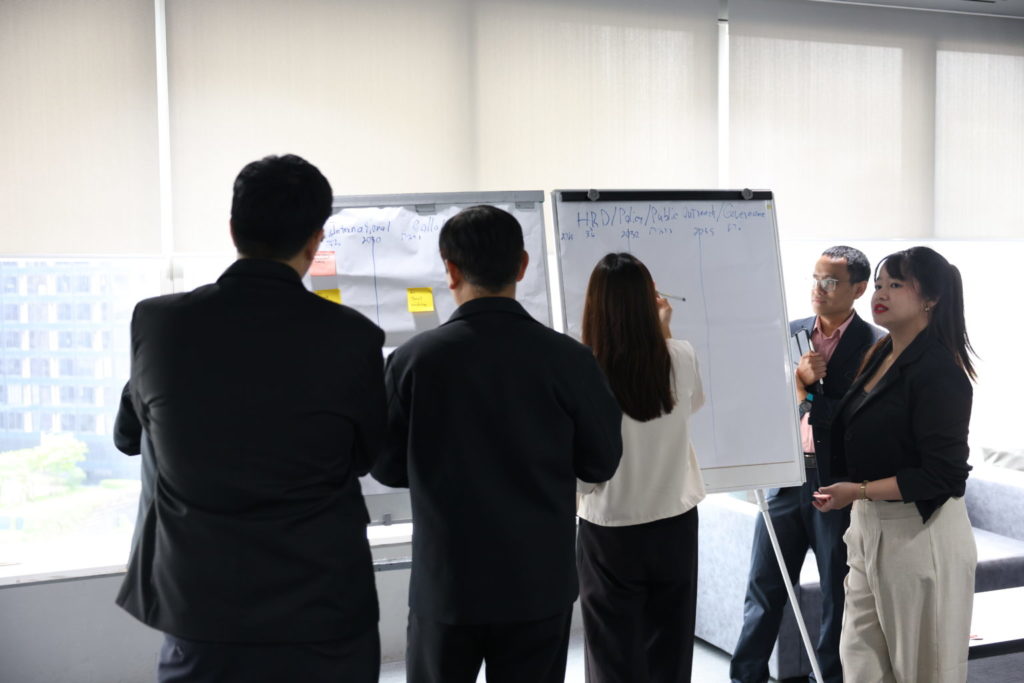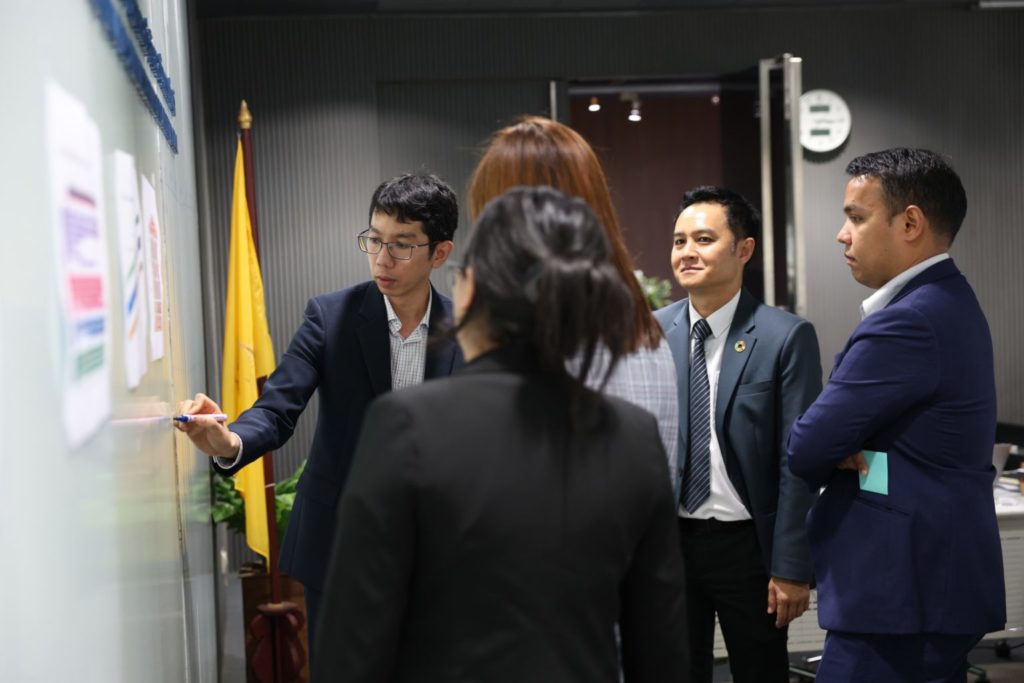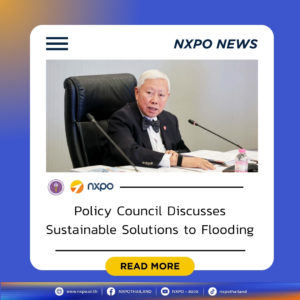On 23 July 2025, NXPO, in collaboration with Prince of Songkla University (PSU), organized a workshop to develop Thailand’s Fusion Technology Roadmap. The workshop served as a platform for exchanging insights and gathering expert input on key policy, research, human resource, and industrial development issues to refine the roadmap and align it with Thailand’s specific context and long-term needs.
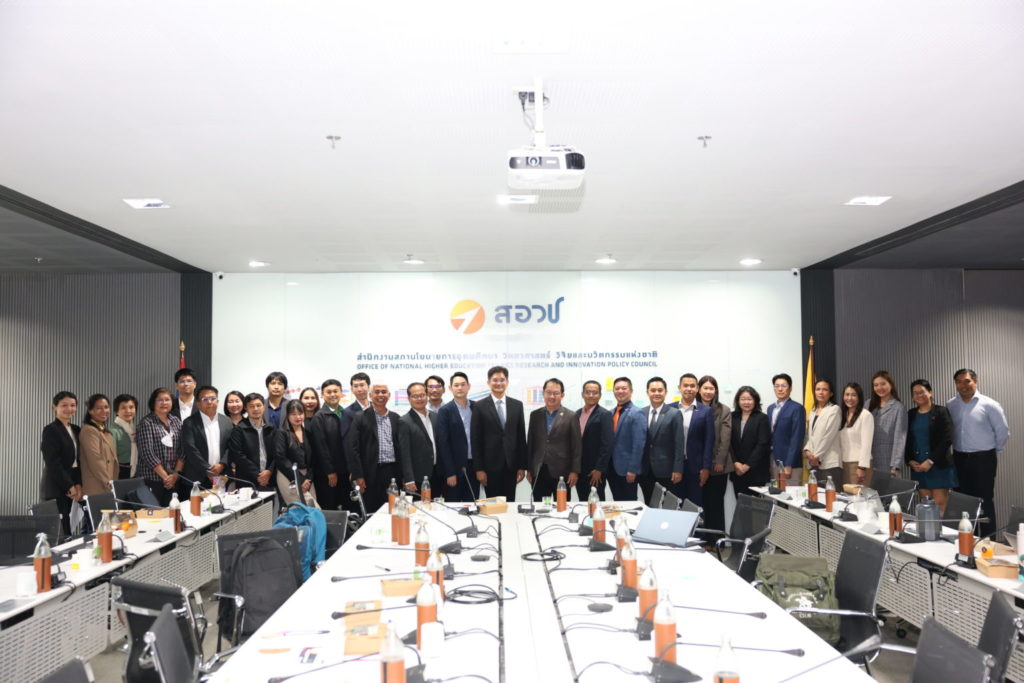
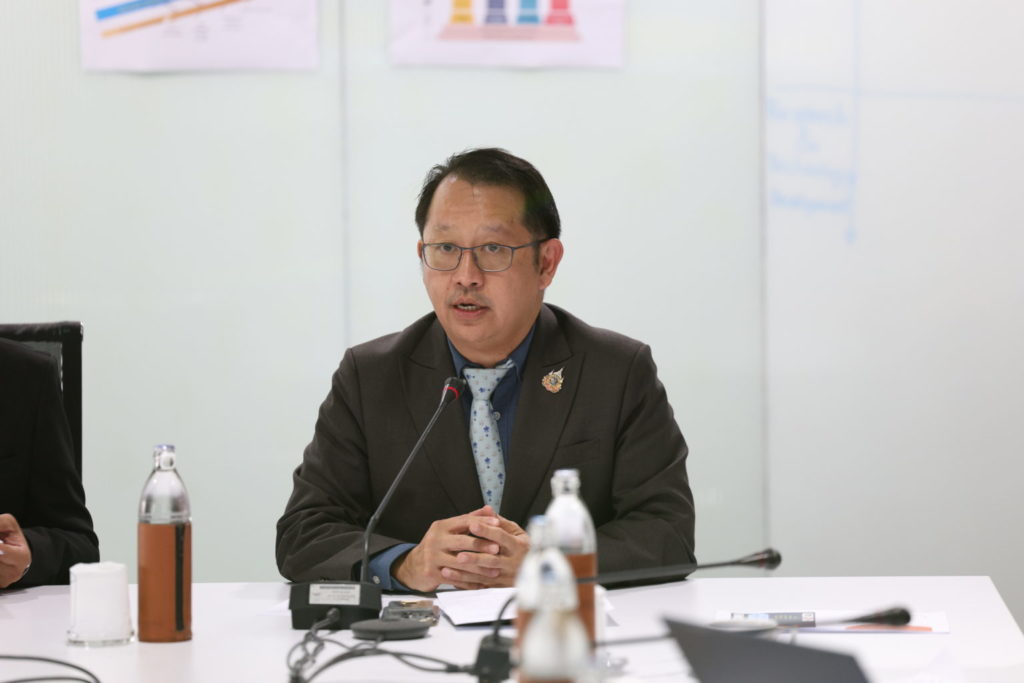
In his opening remarks, Assoc. Prof. Wongkot Wongsapai, Vice President of NXPO, emphasized that fusion technology is a frontier science attracting global attention due to its potential as a clean, safe, and sustainable energy source. However, realizing this potential requires sustained planning, substantial investment, and international cooperation. Preliminary assessment of Thailand’s fusion innovation ecosystem identified both opportunities and challenges, and proposed the following strategic directions:
- Strategic Partnerships: Thailand should collaborate with countries whose fusion capabilities complement Thailand’s context to enable technology transfer and long-term cooperation.
- Central Coordination: A lead agency should be clearly designated to coordinate national efforts and drive fusion development forward.
- Regulatory Readiness: Existing laws and regulations must be adapted to support emerging fusion technologies, facilitate investment, and ensure safety.
- Human Capital Development: Talent development must be prioritized through ambitious R&D projects and curriculum updates to build future-ready capabilities.
- Defined Technological Pathways: Thailand needs to establish a clear direction for fusion development to inform infrastructure planning and workforce preparation.
- Industry Engagement: Dedicated platforms should be created to encourage private sector involvement and forge stronger linkages with industry.
- Long-Term Milestones: A phased approach with 5-, 10-, 20-, and 30-year goals will help steer Thailand’s strategic journey in fusion technology.
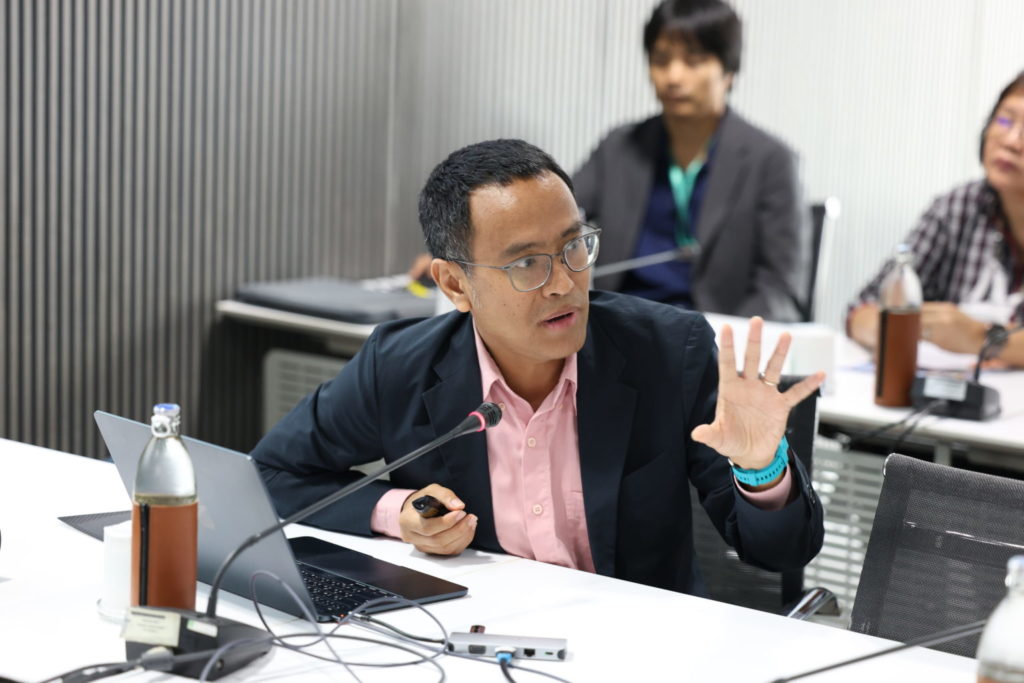
Asst. Prof. Dr. Boonyarit Chatthong, Associate Dean for Research, Innovation, and Public Relations at PSU’s Faculty of Science and project leader, noted that roadmap development involved a comprehensive review of fusion ecosystems in leading countries—including the U.S., EU, U.K., China, and Japan—combined with an in-depth assessment of Thailand’s own capacities. The team also conducted expert interviews to capture insights from specialists in fusion and plasma technologies.
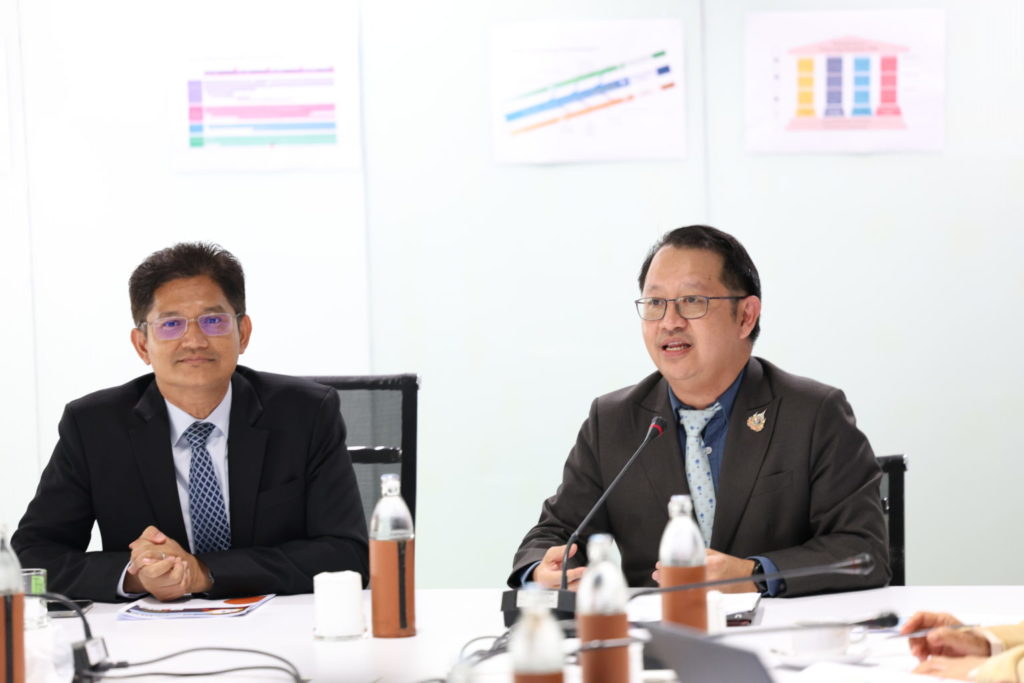
Assoc. Prof. Thawatchai Onjun, Executive Director of Thailand Institute of Nuclear Technology (TINT), offered key suggestions:
- Low-temperature plasma technology should be clearly separated from nuclear fusion plasma in the roadmap for targeted development.
- A visionary long-term goal, Fusion 2050, should be adopted to position Thailand as a future leader in fusion innovation.
- Clear targets should be established for required personnel and R&D investment.
- The term “Fusion 2050” was also recommended as a branding strategy to enhance public recognition.
Professor Emeritus Dr. Chachanat Thebtaranonth, Advisor at the Program Management Unit for Human Resources & Institutional Development, Research, and Innovation (PMU-B), emphasized that in the short term, technologies with commercial potential that align with industry interests should be identified to ensure practical application.
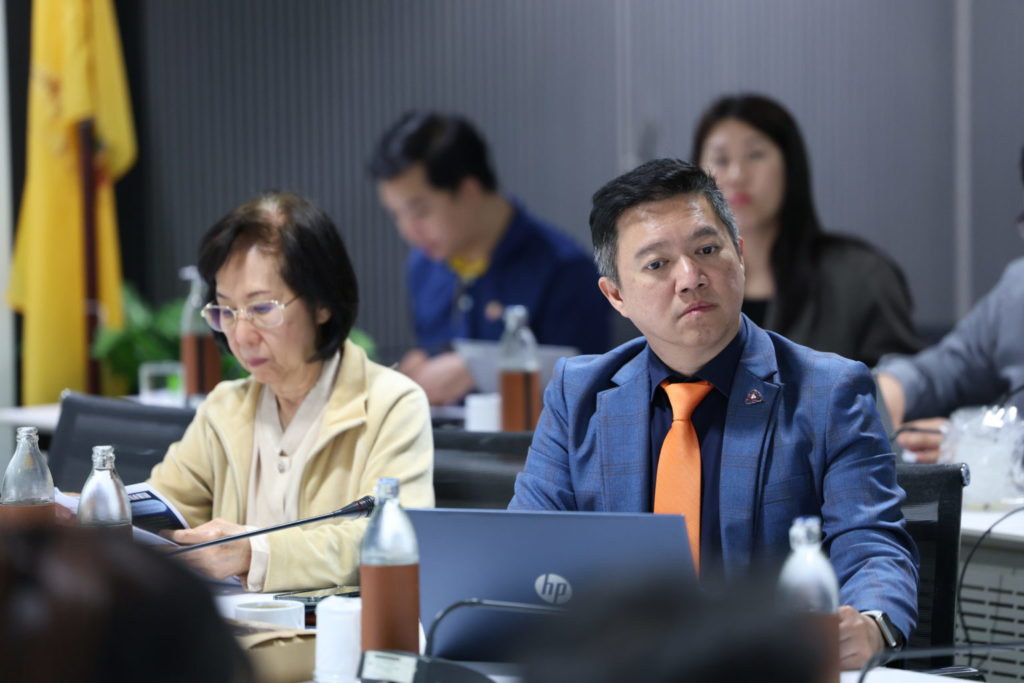
The workshop further stressed the importance of establishing a concrete implementation timeline across three development phases, with the ultimate goal of achieving Fusion Technology 2050:
- Short Term: Focus on public awareness, foundational research, human capital development, and initial private sector engagement in relevant technologies.
- Medium Term: Accelerate scalable technologies to support industrial applications and build Thailand’s innovation infrastructure.
- Long Term: Develop homegrown fusion capabilities and foster strong collaboration across government, industry, and academia to secure leadership in future technologies.
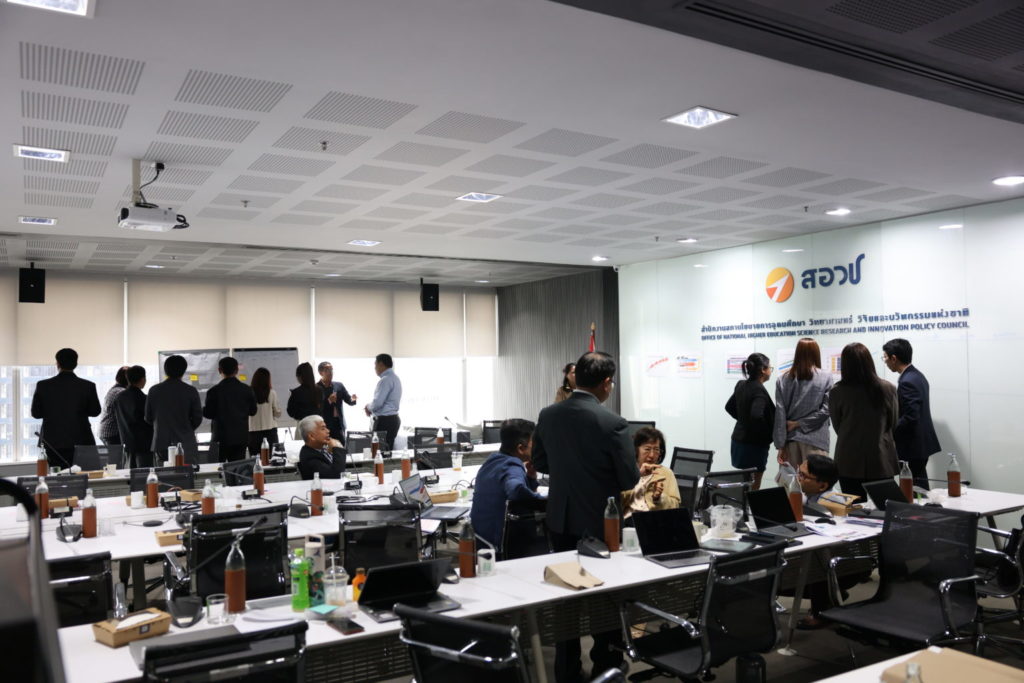
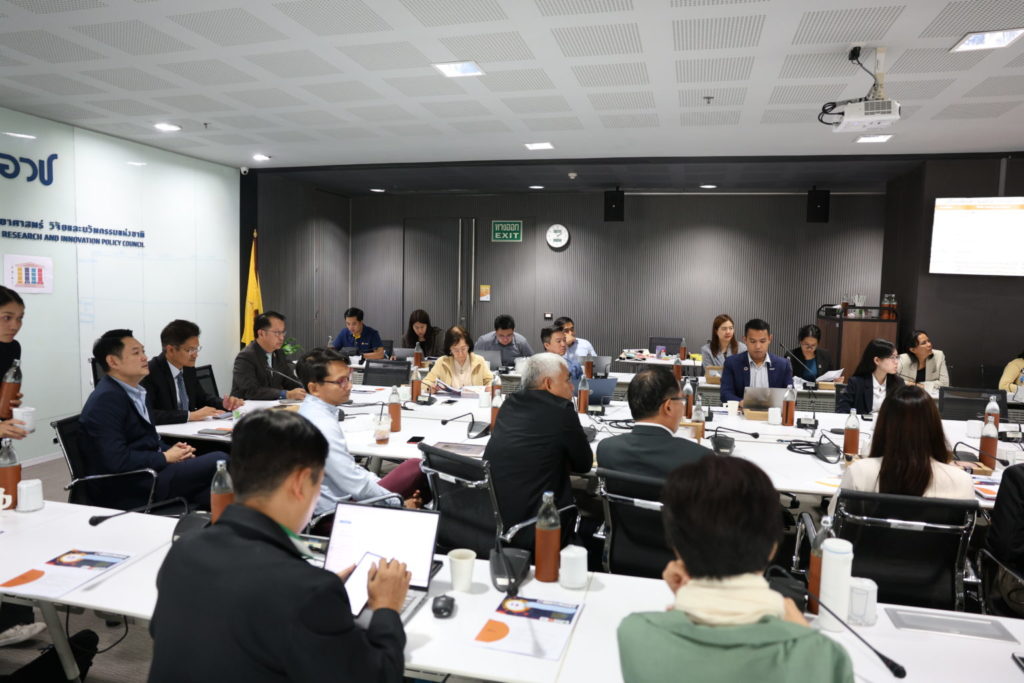
The workshop gathered participants from across sectors, including government agencies, academia, and private industry. Notable organizations represented included: TINT, Thailand Science Research Innovation (TSRI), PMU-B, the National Energy Technology Center (ENTEC), National Science and Technology Development Agency (NSTDA), Thailand Institute of Scientific and Technological Research (TISTR), the Office of Atoms for Peace (OAP), the Electricity Generating Authority of Thailand (EGAT), PSU, Kasetsart University (KU), King Mongkut’s University of Technology Thonburi (KMUTT), Walailak University, House of Representatives’ Committee on Energy, Baker & McKenzie, Kumwell Corporation, B.Grimm Power, and Business Development.
